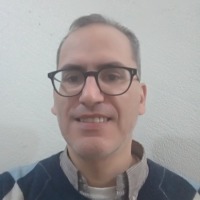
Giorgio Delzanno
Summary
Prof. Giorgio Delzanno graduated in Computer Science in 1992. He defended his PhD thesis in Computer Science in 1998 (Doctorate program in the Genoa, Udine and Pisa consortium) and was Post-Doc at the Max Planck Institut in Saarbruecken until the end of 1999. He got a position In 2005 Associate Professor at the University of Genoa. He is Full Professor at the University of Genoa since 2018.
Prof. Delzanno is currently the Coordinator of the PhD in Computer and Systems Engineering at the University of Genoa. Since 2012 he has been a member of the Orientation Commission of the Computer Science Degree Program and deputy coordinator of the Master's Degree in Computer Science.
The research activity was mainly carried out in the following areas: AI and Computational Logic: Logic Programming, Constraints, Multiagent Systems; Formal Methods: Model Checking, Abstract Interpretation, Parameterized Verification; Concurrent and Distributed Systems, Ubiquitous and Pervasive Computing, Internet of Things; Computer Science Education: Computational Thinking and Coding.
He has participated in numerous program and organized committees
conferences, workshops and doctoral schools. Recently he was co-chair of the APCSE 2020 workshops of UMAP 2020 and HCVS of ETAPS 2020.
He is co-founder of Druidlab, a joint laboratory with the FOS Group of Genoa, and a member of GRIN, of the INSTM, of the CINI laboratory on Smart Cities and of the Indam GNCS group.
Agents & Multi-Agent Systems Artificial Intelligence Computer Education Distributed & Parallel Computing Emerging Technologies Mobile & Ubiquitous Computing Theory & Formal Methods